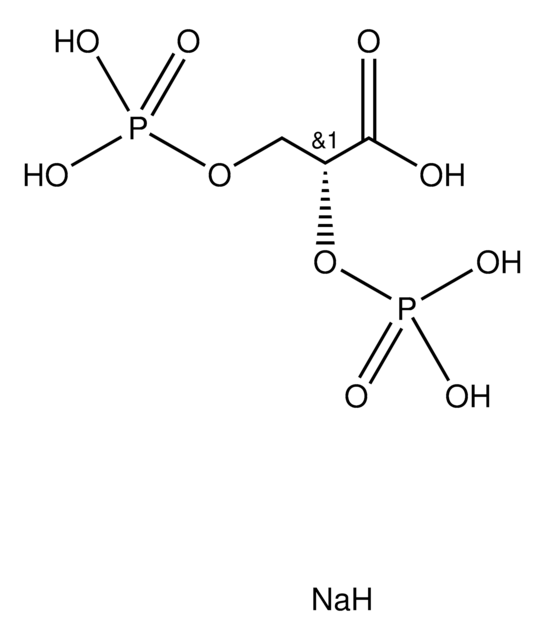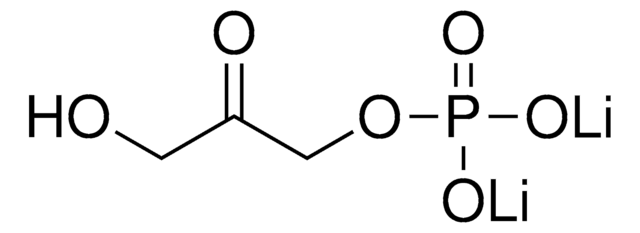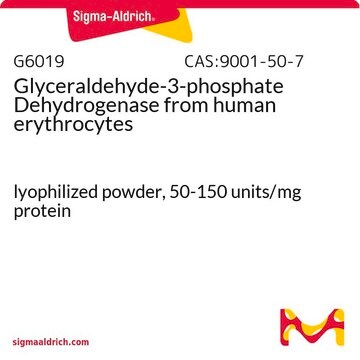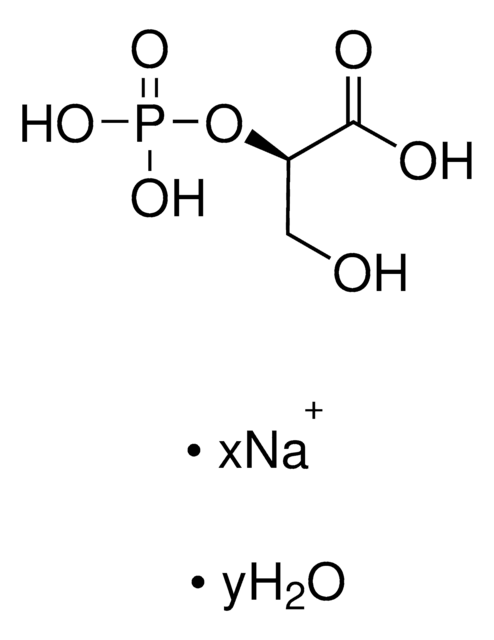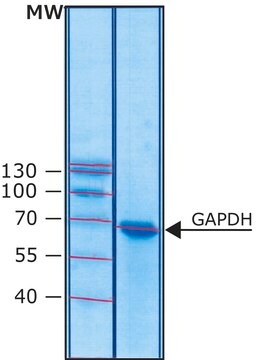G5251
DL-Glyceraldehyde 3-phosphate solution
45-55 mg/mL in H2O
Synonym(s):
(2-Hydroxy-3-oxopropoxy)phosphonic acid, 3-Phosphoglyceraldehyde
About This Item
Recommended Products
biological source
synthetic (organic)
Quality Level
form
liquid
concentration
45-55 mg/mL in H2O
color
colorless
cation traces
Ba: ≤100 μg/mL
shipped in
dry ice
storage temp.
−20°C
SMILES string
OC(COP(O)(O)=O)C=O
InChI
1S/C3H7O6P/c4-1-3(5)2-9-10(6,7)8/h1,3,5H,2H2,(H2,6,7,8)
InChI key
LXJXRIRHZLFYRP-UHFFFAOYSA-N
Application
Biochem/physiol Actions
Other Notes
Signal Word
Danger
Hazard Statements
Precautionary Statements
Hazard Classifications
Eye Dam. 1 - Skin Corr. 1B
Storage Class Code
8A - Combustible corrosive hazardous materials
WGK
WGK 3
Flash Point(F)
Not applicable
Flash Point(C)
Not applicable
Personal Protective Equipment
Choose from one of the most recent versions:
Certificates of Analysis (COA)
Don't see the Right Version?
If you require a particular version, you can look up a specific certificate by the Lot or Batch number.
Already Own This Product?
Find documentation for the products that you have recently purchased in the Document Library.
Customers Also Viewed
Articles
Review the 10 steps of glycolysis in the Embden-Meyerhof-Parnas glycolytic pathway. Easily compare reaction stages and buy the enzymes for your life science research.
Warburg effect enhances glucose to lactate conversion in tumor cells, regardless of oxygen levels; impacting cancer metabolism since 1924.
Our team of scientists has experience in all areas of research including Life Science, Material Science, Chemical Synthesis, Chromatography, Analytical and many others.
Contact Technical Service


